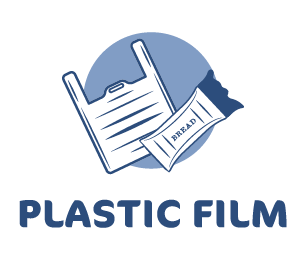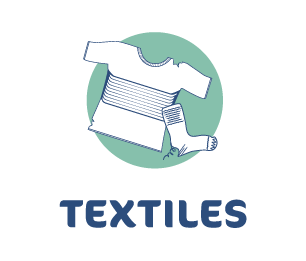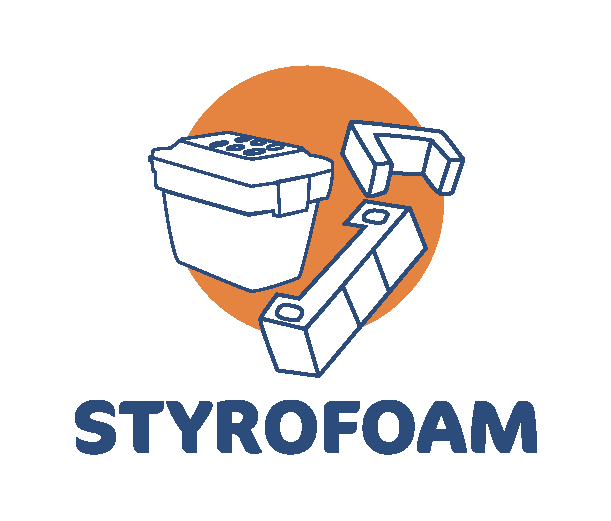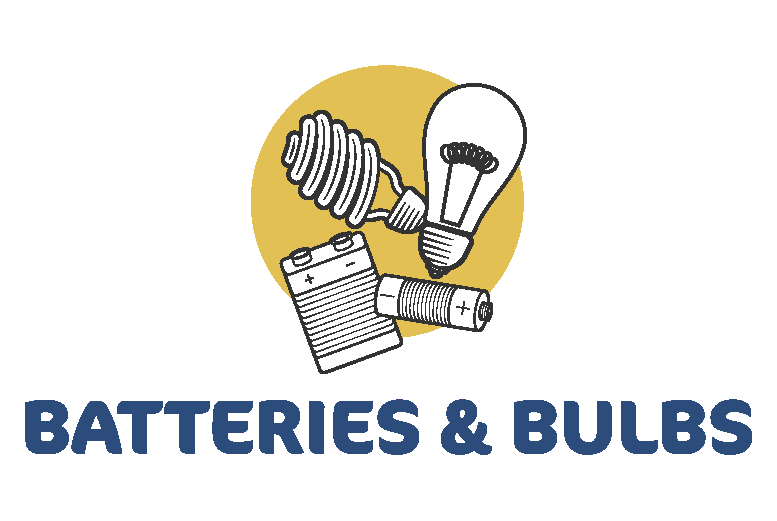Materials We Accept
Accepted Materials
EVERY MONTH
Clean and dry plastic film of any color. Recycling types 2 (HDPE) and 4 (LDPE) if labeled:
- Grocery bags
- Amazon and other plastic film mailers
- Bubble wrap
- Product and case wrap
- Ziploc and sandwich bags – must be free of food residue
- Air pillows – must be flattened
- Bread bags
- Dry cleaning bags
- Produce bags
- Film should stretch
Materials NOT Accepted
- Mailers with paper outside and bubble wrap inside
- Foil-lined bubble wrap
- Salad bags
- Biodegradable bags
- Tape
- Paper bags
- Foil-lined bags like snacks, candy bars, or granola bars wrappers and bags
- Bread bags not made of type 4 LDPE film or mixed material bags
- Store product bags that don’t stretch
- If the material rips or tears instead of stretches
Where does it go?
Orange Recycling Services compresses the plastic film into densified bales. These bales are then delivered to The TREX Company where they’re turned into composite deck boards or sent to other end users to be used for other materials.
Why recycle it?
Plastic bags are manufactured from petroleum and end up as waste in landfills and the ocean. These bags should never be put in with mixed recycling as they can cause equipment malfunctions at the recycling center.
Can I recycle this on my own?
Yes! Local grocery stores have drop off bins for clean, dry, plastic film.
Accepted Materials
EVERY MONTH
Clean and dry textiles in any condition, including:
- Clothes
- Shoes
- Towels
- Sheets
- Purses
Materials NOT Accepted
Textiles that are:
- Wet
- Hazardous or contaminated
- Mildewed and moldy
- Pillows
Where does it go?
Clothing and textiles that are in good shape are donated to community organizations for reuse locally. For items that are not appropriate for reuse, we partner with Green Zone to recycle the textile fibers into new products.
Why recycle it?
Textile waste occupies nearly 5% of all landfill space and only 15% gets recycled.
Can I recycle this on my own?
Yes! Community organizations such as Good Will and the Durham Rescue Mission will accept clothing in good, reusable condition. Durham Solid Waste Management has a textile recycling drop off option as well.
Accepted Materials
Materials NOT Accepted
- Styrofoam takeout containers
- Styrofoam cups
- Styrofoam egg containers
- Packing peanuts
- Soft/flexible foam
- Packaging labeled as type 5
Where does it go?
Our partner Orange Recycling Services densifies the Styrofoam. Densified blocks are then shipped to end market manufacturers to make things like plastic components, picture frames and building materials.
Why recycle it?
Styrofoam (EPS) is manufactured from petroleum, and like other plastic products, it is not easily biodegradable. EPS is also comprised of more than 90% air and fills up landfills and contaminates ecosystems.
Can I recycle this on my own?
DART Corporation in Randleman, NC will accept consumer styrofoam.
Accepted Materials
Household batteries
January, February, April, May, July, August, October, November
- Alkaline
- Nickel Cadmium (NiCd)
- Nickel Metal Hydride (NiMH)
- Lithium-Ion
- Button Cells
- Rechargeable
- Small electronics batteries
IMPORTANT: please put tape on the terminals of any 9v or greater voltage battery as well as lithium and larger size batteries.
Household Light Bulbs
March, June, September, December
- Incandescent
- CFL
- LED
- Halogen
*Note, 2 or 4 foot fluorescent tubes incur extra fee*
Materials NOT Accepted
- Car batteries
- Lead-acid batteries
- Swollen or bulging batteries
- Broken bulbs
Where does it go?
We partner with Batteries Plus. Batteries & bulbs are sent to facilities where metals and chemicals are recycled, and harmful materials are properly disposed of.
Why recycle it?
Recycling batteries helps keep toxic metals out of landfills and helps prevent ground water contamination.
Mercury containing light bulbs like CFLs can seep into groundwater. Phosphor, which is present in fluorescent bulbs and tubes, is toxic. Light bulbs contain valuable metals, glass and other materials that can be separated and recycled into new products.
Can I recycle this on my own?
Lowes and Batteries Plus have consumer drop off options.
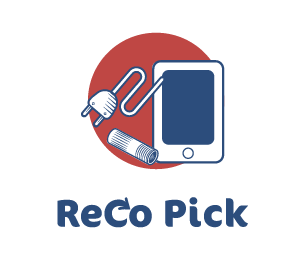
Accepted Materials
Changes Monthly! 20+ materials each year. Check the Calendar
You’ll receive an email each month indicating what you can put in your ReCo Pick bag that month. Some examples of ReCo Picks are:
- Small Electronics
- Kitchenware
- Wine Corks
- Art & Office Supplies
- Bottle Caps
- Eyeglasses
- Yard Signs
- Toys
- Tote Bags
- Scrap Metal
- Books
- CDs/DVDs
- Plant Pots
- Household Tools
- Mixed Mailers
ReCo Picks
Changes Monthly! 20+ materials each year. Check the Calendar
Where does it go?
We partner with various local community organizations to either reuse or recycle these materials.
ReCo One Stop and Add-on Services
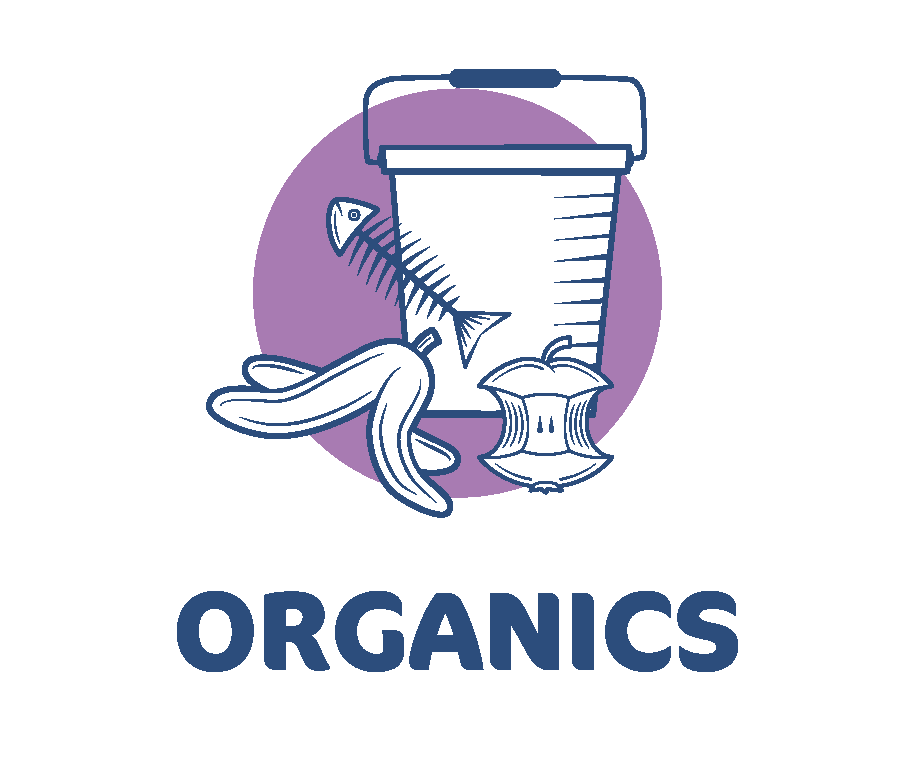
Learn about ReCollective OneStop.
Add Food Scrap pickup to your Hard-To-Recycle plan (available in parts of the Triangle).
Accepted Materials
Food Scraps & Organics
- Fruit & vegetable scraps
- Eggshells
- Coffee grounds
- Loose-leaf tea
- Baked goods & bread
- Nuts & shells
- Seeds & pits
- Tofu
- Meats
- Dairy Items
- Coffee filters & tea bags
- Paper towels, napkins, and bags
- Flowers & house plant trimmings
- Pizza boxes
- Cotton fabric
- Anything that grows 🙂
Add-on Collection Services
Fluorescent Tubes
- $4 per 2’ or 4’ tube
- Not accepted: broken tubes
Where does it go?
Batteries Plus partners with facilities that recycle the metal and glass materials from the bulbs.
Why Recycle it?
Phosphor, which is present in fluorescent tubes, is toxic. Light bulbs contain valuable metals, glass, and other materials that can be separated and recycled into new products.
Printers & Monitors
- $15 each
- Not accepted: monitors greater than 24″. Tube CRT monitors. Office-type printers/copiers.
Where does it go?
Triangle Ecycling recycles your printers and monitors.
Why Recycle it?
Recycling electronics plays a vital role in reducing electronic waste, which contains harmful chemicals that can contaminate soil and water if not handled correctly. Additionally, it conserves precious resources, as recycled components from old devices can be used to manufacture new products, thereby decreasing the environmental impact of mining and production.
Paper to be Shredded & Recycled
- $20 per 15”x12”x10″ Bankers Box
- We provide the box, and you fill it up. We pick up the box on your next pick-up day.
- Accepted: Any type of paper, softback book, journal, and non-metal folders. Staples and paper clips are ok to include.
- Not accepted: plastic notebooks, metal ringed binders, transparencies, CD’s, DVD’s, thumb drives, credit cards, and small office supplies.
Where does it go?
Orange Recycling Services properly shreds and recycles the paper.
Why Recycle it?
Recycled paper use saves resources and reduces the paper industry’s impact on the planet.
Latex Paint
- $4 per gallon
- Not accepted: oil-based paints and aerosols
Where does it go?
MXI Environmental Services turns old paint into new paint products.
Why Recycle it?
Recycling your paint ensures that compounds like VOCs are disposed of safely and don’t enter local ecosystems and ground water.
Clamshells (Recycling Symbol #1)
- $2 to 4 per provided Blue Bag
- ReCo recycles clamshells made of polyethylene terephthalate, abbreviated as PET or PETE. LEARN MORE.
- These include containers for berries, other vegetables, salads, herbs, some deli items, and some egg cartons.
- Some municipalities in our service area offer curbside recycling for clamshells. Please review your local recycling guidelines before deciding if you need ReCo’s clamshell service.
Where does it go?
Clamshells will primarily be recycled. We occasionally have opportunities to distribute clamshells to produce growers at local markets, but given the volume of clamshells, most will be recycled.
The ReCollective partners with Orange Recycling Services for clamshells. ORS is a commercial recycling company, locally owned and operated for over 34 years in Durham, and serves the entire Triangle.
Why Recycle it?
#1 PETE should be recycled because it helps reduce the amount of waste sent to landfills and conserves natural resources, such as petroleum, used in its production. Additionally, recycling PETE supports the circular economy by turning used containers into new products, thereby extending the material’s lifecycle and reducing environmental impact.
Expired Prescriptions
- We no longer offer these envelopes because they are available at CVS for a lower price than what we can purchase them for ourselves.
- Due to regulations on prescription drugs, you will be required to put them in the mail yourself.
Where does it go?
Sharps Compliance provides destruction of all medications at their DEA-registered treatment facility. Note: Customers MUST mail the envelopes themselves. TheReCollective does NOT pick up medications during our monthly collection routes.
Why Recycle it?
Unused drugs that are flushed or landfilled can contaminate the groundwater. Additionally, storing unused or expired drugs can potentially lead to accidental poisoning, overdose, or abuse.
#5 Plastics
- $2 to 4 per provided Green Bag
- ReCo recycles #5 plastics, which include containers and lids such as yogurt and butter tubs, takeout containers, disposable cups, and empty pill bottles. LEARN MORE.
- Some municipalities in our service area recycle #5 plastics curbside. Please review your local recycling guidelines before deciding if you need ReCo’s #5 service.
Where does it go?
The ReCollective partners with Orange Recycling Services for #5 plastics. ORS is a commercial recycling company, locally owned and operated for over 34 years in Durham, and serves the entire Triangle.
Why Recycle it?
Recycling #5 plastics, or polypropylene, reduces waste in landfills and conserves natural resources. It also cuts down on greenhouse gas emissions by requiring less energy to produce new products from recycled materials. Additionally, it supports job creation and meets consumer demand for sustainable products.
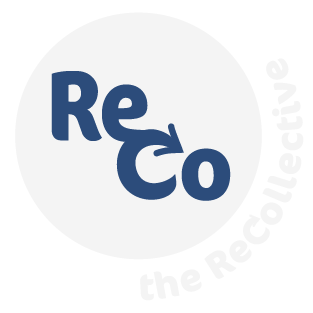
How it Works
Materials
About
F.A.Q.
Blog
Almost Anything Bag Program
Mailback Program
Terms of Service
Privacy Policy
Cookie Policy
Sign Up
Member Login
Email Support: Help@TheReCollective.co
Text Support: (919) 336-1765
Durham, NC 27701

